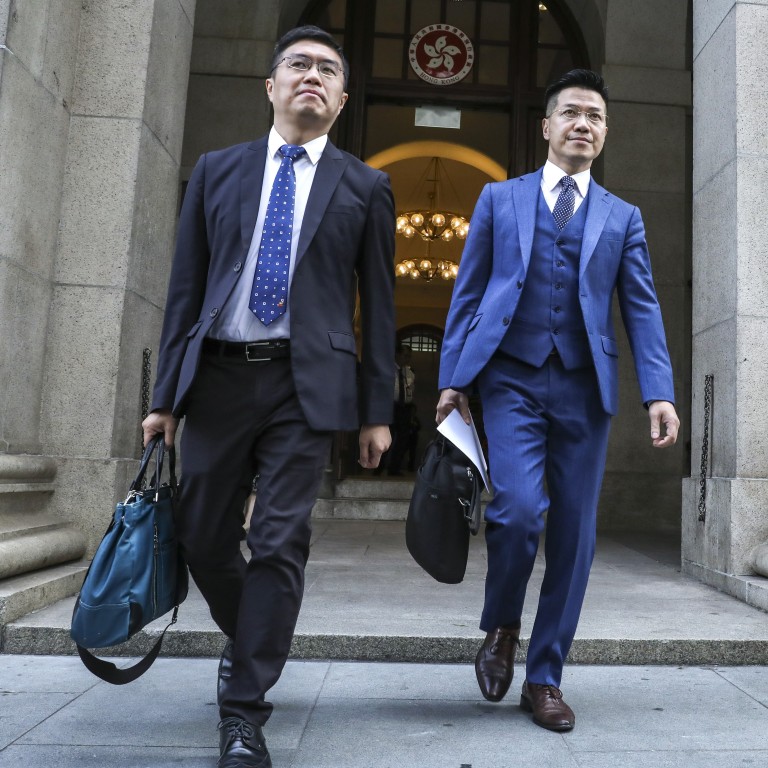
Like it or not, Hong Kong has no choice but to hold by-elections
- The winners may end up serving for only a couple of months before a general election takes place, but this sad state of affairs is the fault of the government
The removal of two democratically elected Hong Kong lawmakers following a court ruling against the government’s disqualifications of their allies in Legislative Council by-elections has raised questions over the city’s electoral arrangements. The two ousted pan-democrats, Au Nok-hin and Gary Fan Kwok-wai, lament that the redress mechanism is designed in such a way that the camp will lose the seats even when those barred from standing eventually prevail in election petitions. The removals also mean the government may need to hold two by-elections next year, even though a general election will be held in September.
This undesirable state of affairs stems from the procedural flaws arising from the returning officers’ decisions to bar Agnes Chow Ting and Ventus Lau Wing-hong from running in the by-elections in March last year. The two were disqualified because their perceived pro-independence stance could not fulfil the requirement of upholding the Basic Law, which says Hong Kong is an inalienable part of China. The court eventually ruled in favour of the two, but declared Au and Fan unduly elected as a result. The two said they were victimised even though it was the fault of the returning officers.
Lawmakers lose seats after top court rules their elections to Legco invalid
The choices of hundreds of thousands of voters in the two constituencies were also effectively overturned. The impact could be even greater if the same happened in a general election. With individual geographical constituencies returning up to nine lawmakers each, the winners could all be unseated as a result of electoral irregularities.
The government is also caught between a rock and a hard place. Given a general election is scheduled in September and it takes months to prepare for a by-election, the winners may only serve a month or two. Manpower and funding are also factors to consider.
The Legislative Council Ordinance says a by-election must be held in the event of a lawmaker being unduly elected, except when it is within the four months preceding the end of the term. The electoral authority remains non-committal at this stage, saying it is considering whether it would be practical to hold the by-elections so soon before a general election. But the law seems to give little leeway. The provisions suggest that it is still necessary to fill a vacancy even if the winners serve for only four months. As long as it is logistically feasible, there seems to be no reason not to hold the by-elections.
There are those who believe we should not waste resources on such by-elections. But like it or not, it is the price to pay to rectify government errors. Officials also risk being criticised if they shy away from holding the by-elections, which may become another test of public sentiment as in the case of the district council polls last month, when the pan-dems scored a landslide victory.

